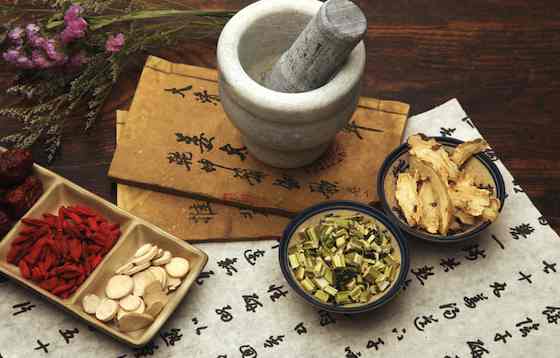- MENU
- HOME
- SEARCH
- WORLD
- MAIN
- AFRICA
- ASIA
- BALKANS
- EUROPE
- LATIN AMERICA
- MIDDLE EAST
- United Kingdom
- United States
- Argentina
- Australia
- Austria
- Benelux
- Brazil
- Canada
- China
- France
- Germany
- Greece
- Hungary
- India
- Indonesia
- Ireland
- Israel
- Italy
- Japan
- Korea
- Mexico
- New Zealand
- Pakistan
- Philippines
- Poland
- Russia
- South Africa
- Spain
- Taiwan
- Turkey
- USA
- BUSINESS
- WEALTH
- STOCKS
- TECH
- HEALTH
- LIFESTYLE
- ENTERTAINMENT
- SPORTS
- RSS
- iHaveNet.com: Health
Wendy Zukerman

A hooked herb, root extract and a dash of bark -- it may sound like a witch's brew, but these mainstays of Chinese medicine could provide treatments for diseases that have foiled Western doctors, such as Parkinson's and irritable bowel syndrome (IBS).
"In the past, the pharmaceutical industry didn't put much effort into traditional Chinese medicine," says Jing Kang, a biochemist at
For more than 2,000 years, Chinese doctors have treated Parkinson's-like symptoms with gou teng, a herb with hook-like branches. Early this year, 115 people with Parkinson's were given a combination of Chinese medical herbs, including gou teng, or a placebo for 13 weeks. At the end of the study, volunteers who'd taken the herbs slept better and had more fluent speech (Parkinson's Disease).
Li Min, a traditional Chinese doctor at
Li's team has found one such substance, the alkaloid isorhy, in gou teng. It induced autophagy at a similar rate to a drug called rapamycin, which has recently been touted as a candidate for Parkinson's treatment. However, because rapamycin depresses the immune system, it would have serious side effects, whereas gou teng has been taken for centuries with no apparent ill effects.
Li, who presented her results at the Keystone Symposia on Molecular and Cellular Biology in May in Whistler, British Columbia, Canada, will begin trials of synthesized isorhy in rodents later this year.
Meanwhile, Zhaoxiang Bian, also at
IBS affects up to 20 percent of people, causing abdominal pain, constipation and diarrhea, says John Furness at the
In 2007, Bian gave 80 people with IBS either JCM-16021 with Holopon -- a drug that interrupts nerve impulses responsible for digestion -- or Holopon alone. After eight weeks, 52 percent of those given JCM-16021 with Holopon had reduced IBS symptoms, compared with 32 percent of those given just Holopon.
IBS is partly caused by high levels of serotonin in the gut. Last year, Bian found that giving JCM-16021 to rats with IBS-like symptoms broke down serotonin in their bowel faster than normal, reducing their discomfort. His team has since isolated several compounds in JCM-16021 that block serotonin's activity in the rat gut, including magnolol, a herb taken from magnolia trees (
Conventional drugs target only one aspect of IBS. Bian is now combining the active components of JCM-16021 to develop a new drug that attacks the disease on several fronts.
Available at Amazon.com:
Last Child in the Woods: Saving Our Children From Nature-Deficit Disorder
Copyright © New Scientist Magazine
AGING | ALTERNATIVE | AILMENTS | DRUGS | FITNESS | GENETICS | CHILDREN'S | MEN'S | WOMEN'S
Health - Chinese Medicine Offers New Parkinson's Treatments